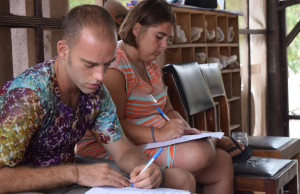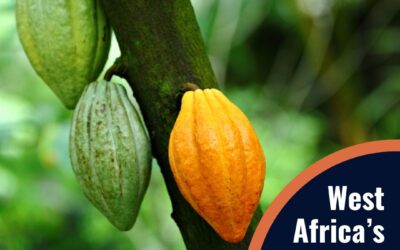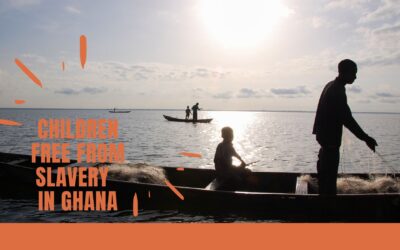Thousands of U.S. Peace Corps volunteers are posted around the globe each year to promote world peace and friendship through projects that tackle international development challenges such as climate change, pandemic disease, food security and gender equality. They work in many of the same communities where slavery and trafficking are rampant.
So a few months ago, we were honored to train 10 new Peace Corps volunteers in Ghana to recognize slavery when they see it—and provide ideas on what they can do about it.
It was a terrific half-day session. We guided participants through the following issues and topics:
- Definitions and types of slavery
- International and Ghanaian laws applicable to trafficking and slavery
- Child labor and worst forms of child labor
- Forced labor and slavery in agriculture
- What can I do? The role of Peace Corps volunteers in combating slavery
Peace Corps volunteers have their own projects to complete, so we did not suggest that they must intervene when they encounter cases of trafficking or slavery. The goal of the training was to encourage the volunteers to report cases to human rights activists. But the volunteers did develop great ideas about other ways they could take action:
- Set up a children’s watch group in their village to help protect children
- Start school clubs that will look out for cases of slavery
- Ask the local clinic to educate community members about the health risks of overworking children or women engaging in sex for money
- Discuss the issues of slavery and human trafficking with religious and community leaders, as well as with residents, and encourage them to shift behavior in order to better support and empower vulnerable and marginalized persons
- Educate other Peace Corps volunteers
- Educate youths so they can recognize when they are being exploited
- Educate farmers

Our thanks to the Peace Corps office in Ghana for welcoming us to conduct this training!
Editor’s note: Learn more about how international development professionals can take action to confront slavery on the front lines in this FTS article for Interaction. Learn more about our program in Ghana on our Ghana webpage. Learn more about our community-based model for fighting slavery here.


